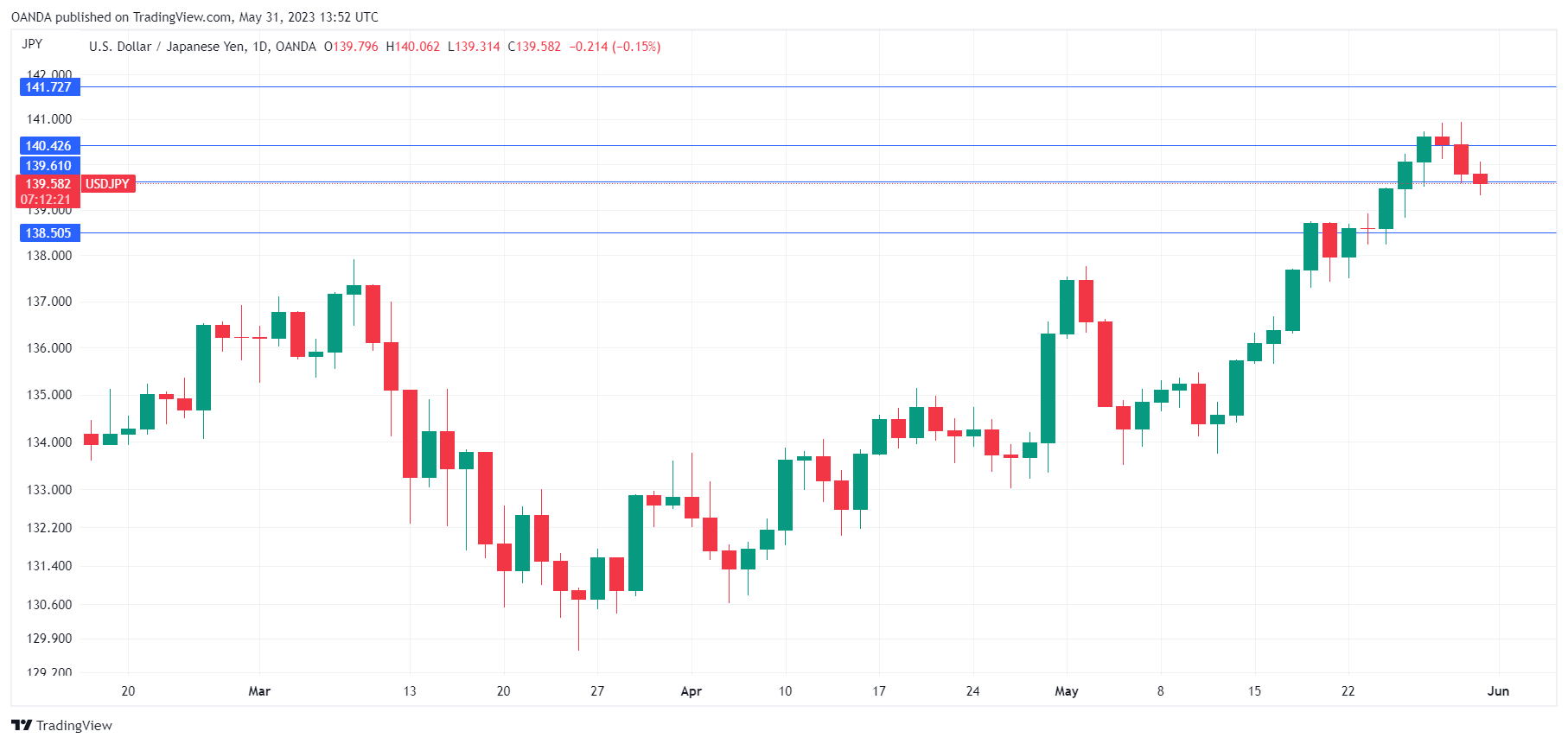- Japanese retail sales and industrial production soften
- A possible snap election in Japan could delay any BoJ move
- House to vote on debt ceiling deal
USD/JPY is almost unchanged on Wednesday, trading at 139.73. The yen has improved since dropping as low as 140.93 this week, its lowest level since November.
Japanese numbers were softer than expected. Retail sales fell to 5% y/y in April, down from 6.9% in March and shy of the consensus of 7.0%. Industrial production came in at -0.4% m/m in May, lower than the April read of +1.1% and the consensus of 1.5%. Consumer confidence remained weak and housing starts plunged 11.9%.
There has been much speculation that the Bank of Japan is planning to tighten policy, but the central bank may decide to wait things out due to the political landscape. There are signs that Prime Minister Kishida may call a snap election, which could take place in September. The BoJ might not want to make any moves, which would likely cause volatility in the financial markets, during an election campaign. There is speculation that the BoJ could make a move, such as widening its yield curve control target in July from 0.50% to 0.75%, but an election announcement would likely ice any such plans. It appears that BoJ watchers will have to wait until a decision is made regarding a snap election.
In the US, the debt ceiling deal between President Biden and House Speaker McCarthy is headed to the House of Representatives for a vote later today. Some Republicans are against the agreement, but the deal is expected to pass with the overwhelming support of Democrats and most Republicans. The deal must then be approved by the Senate. The markets are optimistic, as 10-year Treasury yields have dropped to 3.66%. On Friday, before the deal was announced, 10-year yields hit 3.85%, their highest level since March.

USD/JPY Technical
- USD/JPY is testing support at 139.61. Below, there is support at 138.50
- There is resistance at 140.43 and 141.73
